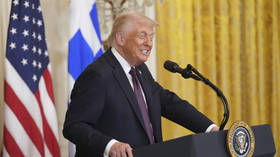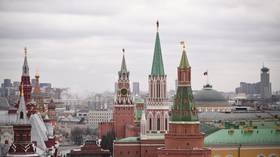Ivan Zuenko: China unveils a surprising new weapon in its information war against the West

When summing up 2020 – a difficult year with the Covid-19 pandemic and an escalation in the confrontation between Beijing and Washington – prominent Chinese political scientist Yuan Peng wrote: “It no longer matters what is true or false – what matters is who controls the discourse.”
The expert was referring to media pressure to discredit China, but in fact he identified one of the main features of our time – which could be called the ‘post-truth era’, when public opinion is shaped not by facts but by emotions.
Those who can guide these feelings in the right direction are the ones who shape the information agenda. The emotions that are generated have become the ‘discourse’. This concept, born among French poststructuralist philosophers (primarily Michel Foucault) in the mid-twentieth century, has found itself at the core of global politics in the early twenty-first century.
The year 2022, with all its tumultuous events – the escalation of the ‘Ukraine crisis’, the diplomatic boycott of the Beijing Olympics, Nancy Pelosi’s visit to Taiwan, and the expansion of ‘global NATO’ – has raised the temperature of information confrontation to record levels. We have no reason to expect it to be less heated next year. China is one of those countries which, although it missed out on the initial division of ‘discursive capital’, has recognized the problem in time and is now consistently building up what experts call ‘discursive power’.
Beijing became concerned about this issue about ten years ago, when it became clear that its traditional ‘soft power’ approaches were no longer working. Despite generous investments in promoting its image, China was not treated better as a consequence.
Indeed, on the contrary, the degree of Sinophobia increased in direct proportion to China’s growing economic power. Confucius Institutes were perceived exclusively as breeding grounds for Chinese propaganda. Even a public relations event as obviously successful as the 2008 Summer Olympics was accompanied by loud accusations of human rights abuses and speeches in support of Tibetan separatists.
This is when it became clear to Beijing that what matters is not what is actually happening, but how it is reported on the internet. And online content in today’s world is mostly produced by Westerners and in the English language. As a result, not only the West itself, but also China’s neighbors, look at it through the eyes of the West.
It became necessary to analyze why attitudes towards the actions of a particular country are explained by the manner in which it is presented in the public square – and such an explanation was found in the concept of ‘discourse’. “Whoever controls the discourse controls the power,” Chinese intellectuals began to write, creatively modifying Foucault’s ideas to suit the political demand.
And soon these theoretical findings emerged from the offices of scholars and became the informational basis of Beijing’s new foreign policy – focusing on the ‘great renaissance of the Chinese nation’. The active position of Chinese diplomats and experts in social media (so-called ‘wolf warrior diplomacy’), the promotion of their terminology in various international platforms – all this is part of the ‘discursive power’ that is being developed by Beijing.
The phenomenon of ‘discursive power’ in China has not remained unnoticed by experts on the country. The Institute of International Studies of the Moscow State Institute of International Relations (MGIMO) has also published an analytical report titled ‘From Soft Power to Discursive Power: The New Ideology of China’s Foreign Policy’, which provides a comprehensive assessment of this phenomenon and makes predictions for the future.
According to its findings, struggles around discourse are part of the hybrid confrontation that is already taking place on a global scale. China’s main goal is to counter the ‘discursive hegemony’ of the West, without overthrowing it, because Beijing needs the structure to build constructive relations with other countries. As a result, an alternative discursive reality to the West will gradually be created and most countries of the world will find themselves in the horns of a dilemma in choosing which point of view to adopt. Most importantly, ‘discursive power’ in Chinese interpretations is not limited to the written word – technological, financial and managerial standards are also part of it. Which, of course, means a new divide awaits the planet.
Such is the wondrous new world – the world of post-truth and ‘discursive multipolarity.’
This article was first published by Profile.ru














